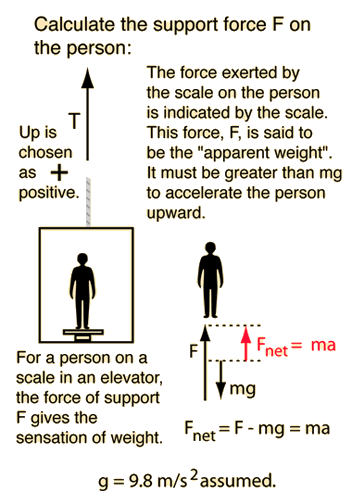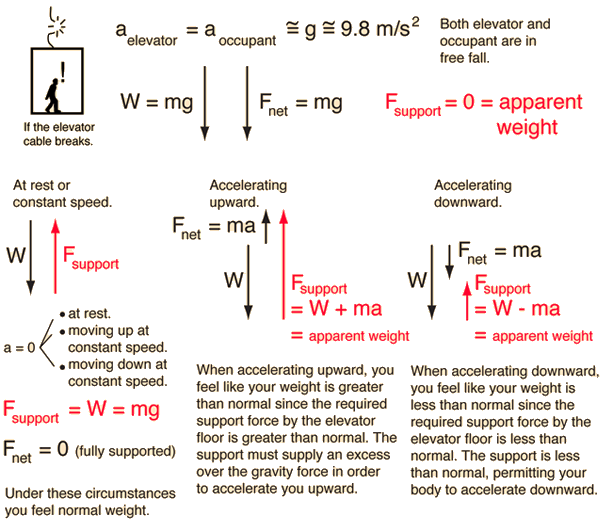Elevator Problem
This is an application of Newton's second law to the forces felt in an elevator. If you are accelerating upward you feel heavier, and if you are accelerating downward you feel lighter. If the elevator cable broke, you would feel weightless since both you and the elevator would be accelerating downward at the same rate.
support force F = mass x acceleration + weight
 |
See lifting mass problem |
| "Weightless" condition if the cable breaks. |
Newton's laws
Standard mechanics problems
| HyperPhysics***** Mechanics | R Nave |
